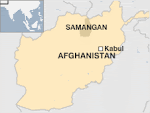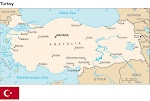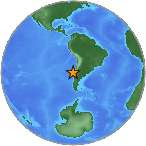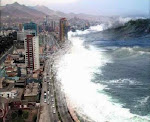 ISLAMABAD, Pakistan - Two years after the earthquake that killed 80,000 people in the mountains of northern Pakistan, survivors struggle with landslides and sky-high prices to rebuild, but virtually all will have adequate shelter this winter. The mammoth effort to reconstruct homes and amenities for 3.5 million people has been lauded by international donors as a model response to a massive natural disaster.Some 210,000 quake-resistant homes have been rebuilt and another 350,000 are under construction across the rugged terrain of Kashmir and North West Frontier Province, now dotted with new corrugated iron roofs and other signs of building activity.There have been setbacks. Monsoon rains slowed work and some international aid groups were briefly evacuated this summer when tribesmen in the quake zone destroyed their offices to display their anger over the deadly Pakistan army raid on Islamabad's Red Mosque.But now only 6,000 quake victims are left sheltering in tents, easing once dire fears of a humanitarian crisis in the harsh Himalayan winter that usually sets in by December."There will be no problem whatsoever this winter. The whole area has changed," said Lt. Gen. Nadeem Ahmed, deputy chairman of Pakistan's Earthquake Reconstruction and Rehabilitation Authority. He hoped that most houses would be finished by year's end.The magnitude 7.6 quake struck on the morning of Oct. 8, 2005, crushing residents in their mud-and-stone rural homes and thousands of children inside poorly built schools.A vast international relief effort, backed by Pakistan's army, staved off more deaths in the months that followed.The challenges of the $4.3 billion campaign to rebuild were, and remain, enormous: to construct 6,500 schools, 800 clinics and hospitals and repair 4,000 miles of roads; to cater for thousands of orphans, widows and hundreds of amputees and others disabled by their injuries.Ahmed said donors have made good on their funding commitments and Pakistan is in a position to rebuild back better, although for now, many schools and clinics are in prefabricated structures. He predicted that most reconstruction would be complete within three years.He said the two worst-hit towns, Muzaffarabad and Balakot, were being relocated.Survivors, recovering slowly from a disaster in which virtually everone lost at least one family member, are more pessimistic.Many complain about inflation in the cost of building materials and transportation and say that life in the harsh yet idyllic mountains of Kashmir — a disputed territory that is divided between Pakistan and India — will never be the same."It will take many years to return my village and my home to the condition they were before the earthquake," said Mohammed Ayub, a 35-year old electrician as he received the last installment of the $2,900 grant from the government to rebuild his house.His elder sister was killed and his father was injured in the temblor at their home village of Hariala Gujrian, about 22 miles southeast of Muzaffarabad, the capital of Pakistan-administered Kashmir. He said it would cost $8,300 to rebuild their house and plans to work in the United Arab Emirates to raise money for his family.The minister for rehabilitation and reconstruction in Pakistani Kashmir, Naseem Khan, said the vast scale of the disaster meant it would take time to recover, but said progress was promising."So far 70 percent of quake survivors have started the reconstruction of their houses in rural areas, and 98 percent of survivors have a roof over their heads," he said.Among the unlucky ones is Mohammed Zamir, 38, father of five living in Thotha village, 12 miles from Muzaffarabad.His family has suffered from the recurrent landslides that have always been a problem in this mountainous region but have worsened since the quake destabilized the terrain further."Our land was damaged by landslides triggered by the earthquake and now we are living in tents on rented land," Zamir said. "NGOs gave us iron sheets to build a shelter, but we have nowhere to build it."
ISLAMABAD, Pakistan - Two years after the earthquake that killed 80,000 people in the mountains of northern Pakistan, survivors struggle with landslides and sky-high prices to rebuild, but virtually all will have adequate shelter this winter. The mammoth effort to reconstruct homes and amenities for 3.5 million people has been lauded by international donors as a model response to a massive natural disaster.Some 210,000 quake-resistant homes have been rebuilt and another 350,000 are under construction across the rugged terrain of Kashmir and North West Frontier Province, now dotted with new corrugated iron roofs and other signs of building activity.There have been setbacks. Monsoon rains slowed work and some international aid groups were briefly evacuated this summer when tribesmen in the quake zone destroyed their offices to display their anger over the deadly Pakistan army raid on Islamabad's Red Mosque.But now only 6,000 quake victims are left sheltering in tents, easing once dire fears of a humanitarian crisis in the harsh Himalayan winter that usually sets in by December."There will be no problem whatsoever this winter. The whole area has changed," said Lt. Gen. Nadeem Ahmed, deputy chairman of Pakistan's Earthquake Reconstruction and Rehabilitation Authority. He hoped that most houses would be finished by year's end.The magnitude 7.6 quake struck on the morning of Oct. 8, 2005, crushing residents in their mud-and-stone rural homes and thousands of children inside poorly built schools.A vast international relief effort, backed by Pakistan's army, staved off more deaths in the months that followed.The challenges of the $4.3 billion campaign to rebuild were, and remain, enormous: to construct 6,500 schools, 800 clinics and hospitals and repair 4,000 miles of roads; to cater for thousands of orphans, widows and hundreds of amputees and others disabled by their injuries.Ahmed said donors have made good on their funding commitments and Pakistan is in a position to rebuild back better, although for now, many schools and clinics are in prefabricated structures. He predicted that most reconstruction would be complete within three years.He said the two worst-hit towns, Muzaffarabad and Balakot, were being relocated.Survivors, recovering slowly from a disaster in which virtually everone lost at least one family member, are more pessimistic.Many complain about inflation in the cost of building materials and transportation and say that life in the harsh yet idyllic mountains of Kashmir — a disputed territory that is divided between Pakistan and India — will never be the same."It will take many years to return my village and my home to the condition they were before the earthquake," said Mohammed Ayub, a 35-year old electrician as he received the last installment of the $2,900 grant from the government to rebuild his house.His elder sister was killed and his father was injured in the temblor at their home village of Hariala Gujrian, about 22 miles southeast of Muzaffarabad, the capital of Pakistan-administered Kashmir. He said it would cost $8,300 to rebuild their house and plans to work in the United Arab Emirates to raise money for his family.The minister for rehabilitation and reconstruction in Pakistani Kashmir, Naseem Khan, said the vast scale of the disaster meant it would take time to recover, but said progress was promising."So far 70 percent of quake survivors have started the reconstruction of their houses in rural areas, and 98 percent of survivors have a roof over their heads," he said.Among the unlucky ones is Mohammed Zamir, 38, father of five living in Thotha village, 12 miles from Muzaffarabad.His family has suffered from the recurrent landslides that have always been a problem in this mountainous region but have worsened since the quake destabilized the terrain further."Our land was damaged by landslides triggered by the earthquake and now we are living in tents on rented land," Zamir said. "NGOs gave us iron sheets to build a shelter, but we have nowhere to build it."As in the days of Noah....



















.jpg)


.bmp)
No comments:
Post a Comment